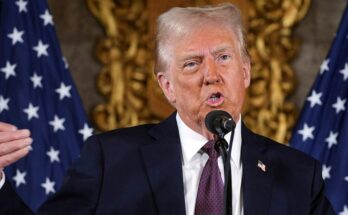India’s foreign secretary, Vikram Misri, met acting Afghanistan Foreign Minister Amir Khan Muttaqi in Dubai last week, making a strong leap forward in bilateral relations.
While India has been gradually increasing its engagement with the Taliban, this latest meeting represents the highest-level talks since the Islamic group’s takeover of Afghanistan in 2021. Notably, this was the second meeting between officials from New Delhi and Kabul in just two months, indicating both countries’ readiness to step up diplomatic engagement.
“We shouldn’t overstate the impact of Pakistan’s tensions with the Taliban on India’s stepped up engagement with the Taliban. New Delhi had already taken some small steps toward Taliban engagement soon after the Taliban’s return to power, before tensions crept into the Taliban’s relations with Pakistan,” Michael Kugelman, director of the South Asia Institute at the Wilson Center, tells Fox News Digital.
TALIBAN GOVERNMENT TO CEASE OPERATIONS AT AFGHAN EMBASSY IN INDIA’S CAPITAL
During the discussions, Misri emphasized the “historic friendship” and “strong people-to-people contacts” between the two nations. Meanwhile, the Afghan foreign minister described India as “an important and economically significant country in the region.”
According to a statement from India’s Ministry of External Affairs, the talks focused on strengthening bilateral relations, addressing security concerns, engaging in development projects and enhancing humanitarian assistance.
India is among several countries actively facilitating trade, aid and medical support to Afghanistan under the Taliban regime. The country, which hosts thousands of Afghan refugees, also pledged to provide “material support” for their rehabilitation back in Afghanistan.
“New Delhi’s outreach to the Taliban is driven by the view that closer engagement can help India better pursue its security and strategic interests in Afghanistan – and these include strengthening trade and connectivity links and ensuring India isn’t threatened by terrorists on Afghan soil,” Kugelman explained.
BIDEN ADMIN’S AFGHANISTAN WITHDRAWAL FAILURES DETAILED IN REPORT
The discussions also touched on enhancing trade via the Chabahar Port in Iran’s Sistan-Baluchestan province. India has been developing the Chabahar Port to enable goods to bypass ports in its rival, Pakistan. This strategic port, which lies just across the border from Pakistan, could provide landlocked Afghanistan with an alternative route to receive and send goods, circumventing Pakistan.
The meeting between India and the Taliban could unsettle Pakistan, which shares borders with both countries. India and Pakistan are long-standing rivals, having fought three wars over Kashmir since both countries gained independence in 1947. This meeting also takes place amid deteriorating relations between the Taliban regime and Pakistan, once considered friendly neighbors, as cross-border violence escalates.
PAKISTANI AIRSTRIKES TARGET TALIBAN IN AFGHANISTAN FOLLOWING SUICIDE BOMBING
The talks occurred just days after India “unequivocally” condemned Pakistani airstrikes in Afghanistan in late December. These rare airstrikes resulted in the deaths of dozens of civilians, including women and children. Pakistani officials claimed the strikes targeted militants of the Pakistani Taliban. Islamabad frequently accuses the Pakistani Taliban of using Afghan territory to launch attacks in Pakistan, a charge Kabul denies.
The diplomatic engagement also follows the Taliban’s appointment of an acting consul in the Afghan consulate in Bombay in November, the same month India’s joint secretary of the Ministry of External Affairs visited Kabul. Although no foreign government, including India, has officially recognized the Taliban administration since it swept to power in 2021, India reopened its embassy in Kabul less than a year after the Taliban’s return to power.
“Islamabad has already seen its relations with its former Taliban asset take a major tumble,” Kugelman, said. “Now it must grapple with the fact that its rival India may fill the vacuum left by Pakistan’s distancing from the Taliban. No matter how you slice it, this is bad news for Pakistan all around.”
BIDEN SAYS HE’S LEAVING TRUMP ‘STRONG HAND TO PLAY,’ DEFENDS HIS RECORD ON AFGHANISTAN
Several factors, in addition to deteriorating Pakistani relations, may have led India to strengthen its relationship with Afghanistan. The weakening of Iran, due to conflicts in the Middle East and internal issues, has diminished its influence over the Taliban. At the same time, Russia, one of India’s closest allies, is moving toward recognizing the Taliban government in Afghanistan, even calling the group a partner in combating terrorism. Moscow perceives a significant security threat from Islamist militant groups across countries from Afghanistan to the Middle East, especially after losing Bashar al-Assad in Syria.
China is also enhancing its connections with the Taliban, causing India to be wary of Beijing’s increasing influence. Additionally, India’s approach may be influenced by President-elect Trump’s imminent return to the White House. The Trump administration initially brokered the U.S.-Afghanistan withdrawal deal. Trump’s re-election could now introduce new dynamics to the region, prompting India to safeguard its long-term interests.
In contrast, the United States has severed diplomatic ties with Kabul since its chaotic withdrawal from war-torn Afghanistan. Washington maintains a policy of sanctions and isolation toward Taliban leaders. But now, nations in the region are evaluating the implications of a new Trump administration for the Taliban.
